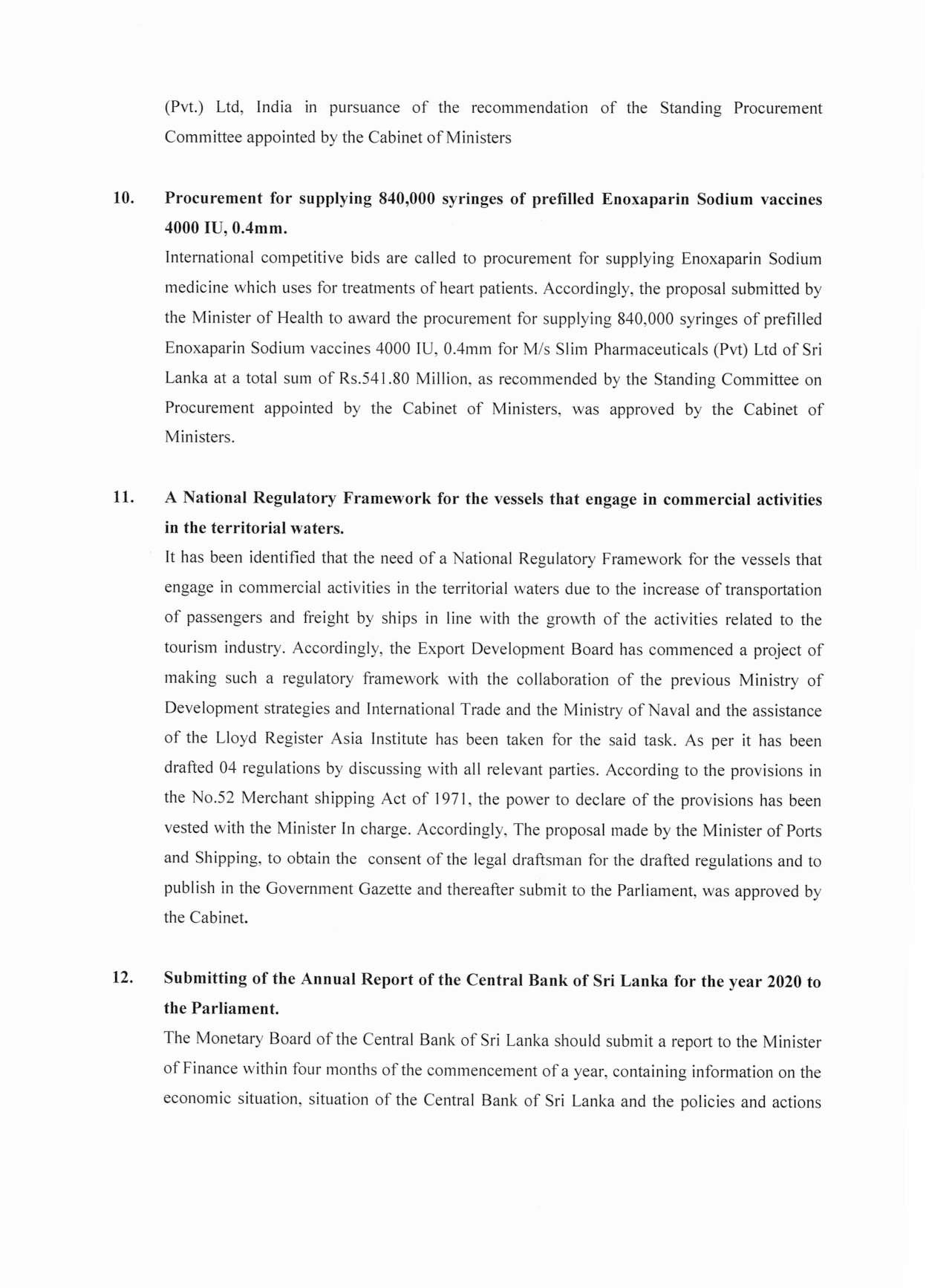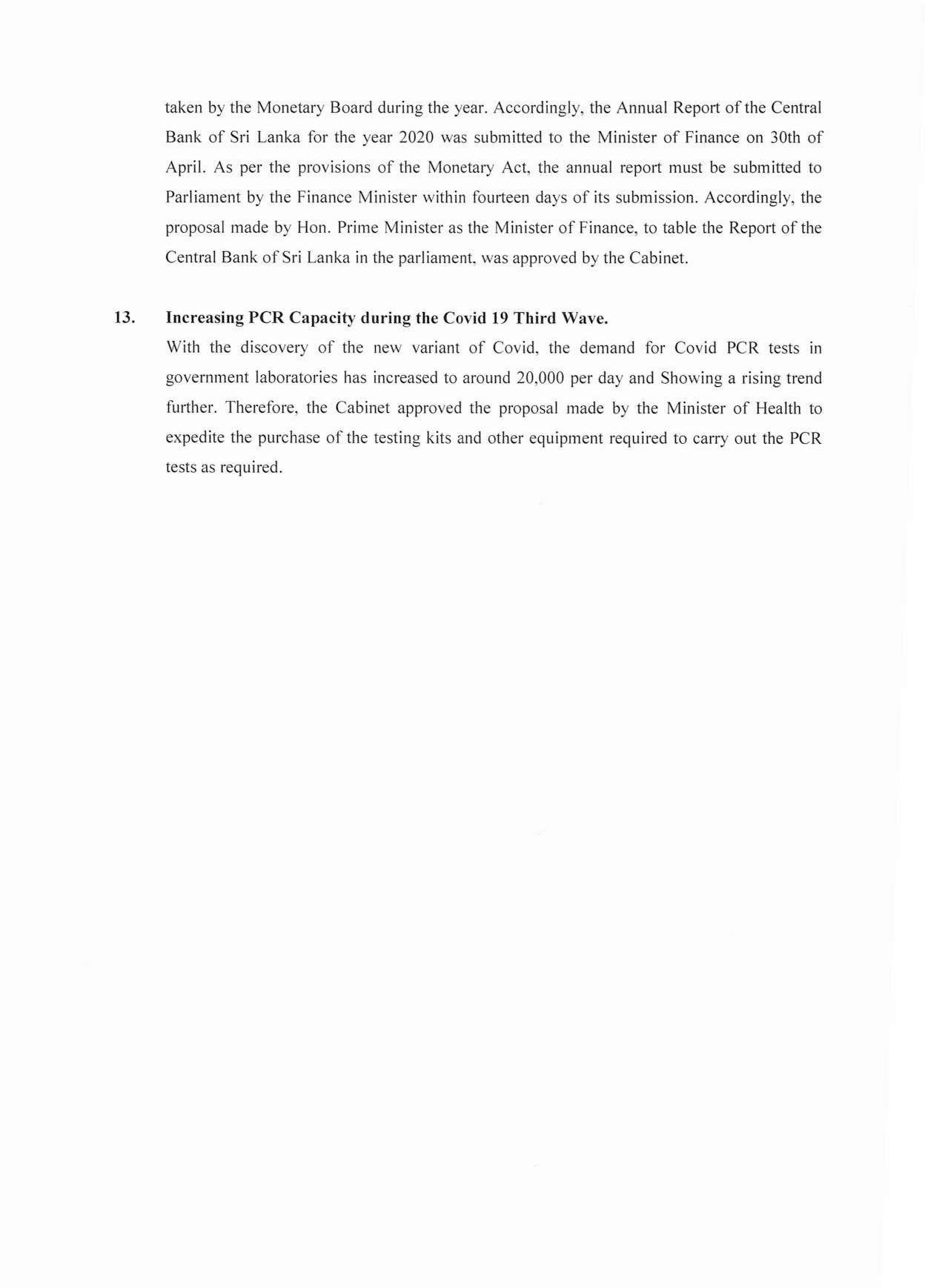Prime Minister Mahinda Rajapaksa, who, as the Minister of Finance, serves as the Governor for Sri Lanka of the Asian Development Bank (ADB), was elected Chair of the ADBBoard of Governors for the year 2021/2022 during the 54th Annual Meeting that was held virtually this afternoon.
The annual meeting that was originally scheduled to be held in Tbilisi, Georgia, had to take place in a virtual format due to the current pandemic. During the meeting, the Governors of Austria and Mongolia were also elected as Vice-Chairs.
The 55th Annual Meeting of the ADB Board of Governors is scheduled to be held in Colombo next year. Full Text of Prime Minister Rajapaksa’s Speech at the 54th Annual Meeting of the ADB
Fellow Governors, President Asakawa, Delegates, Ladies and Gentlemen
Ayubowan!
It is indeed a privilege to be able to participate and share my thoughts at the 54th Annual Meeting of the Asian Development Bank, especially since next year’s meeting is scheduled to be held in Colombo.
The COVID-19 pandemic has resulted in unprecedented loss of human life and has disrupted almost all aspects of our lives, our societies, our economies, our value systems and
our cultural practices. In that background, I believe the time is now right to reflect and re-group. After all, this century is the Asian Century. Our region has faced many crises, but
Asia is also known for its resilience. Therefore, it is not surprising that our region is leading the growth story of the world, even during the current pandemic.
Fellow Governors, emerging Asia has a responsibility to lead the world. We must ensure sustainable practices that will make our environment resilient to climate change. Our policy solutions must be environmentally and socially sustainable. We must preserve our way of life for future generations. The need now is to collectively cooperate in addressing our common issues.
Towards this goal, we must be ready to adopt practices and technologies that help us make use of natural resources more efficiently. In that regard, Sri Lanka has already identified the importance of digitalization to facilitate the delivery of services within a “green economy.” Our Government has also accelerated the drive to digitize public sector services as well.
We must, in addition, reduce our reliance on fossil fuels. We believe the ADB must lead the way in supporting member countries to make the transition from fossil fuels to
renewable energy. We also believe the ADB must extend support to emerging Asia to have smarter, eco-sustainable cities. It should be a new approach to ensure that access to
resources is better managed.
Another important area of focus is Women Empowerment. We must recognize the crucial role that women play in creating a just and equitable society. While the Asian region has
made significant strides in this regard, this is still an area that requires more work as well as the allocation of more resources.
At this time, let us also acknowledge the support extended by the ADB during the pandemic, which included the quick disbursement of a 20-billion dollar package. The 9-billion
dollar Asia Pacific Vaccine Access Facility has also assisted Sri Lanka and many other countries to gain access to much-needed vaccines, and we are thankful to the ADB for this
support.
Fellow Governors, President Asakawa and Delegates,
The challenges ahead of us are daunting. However, I am certain that, together, we will be able to address these challenges efficiently and effectively, and that the ADB will provide
the necessary leadership for that effort.
Finally, as the incoming Chair, it is my great pleasure to invite you to Colombo next year to attend the 55th Annual Meeting of the ADB Board of Governors. I look forward to
continuing this important dialogue, and I wish you good health and safety!
May the Triple Gem Bless you al

























